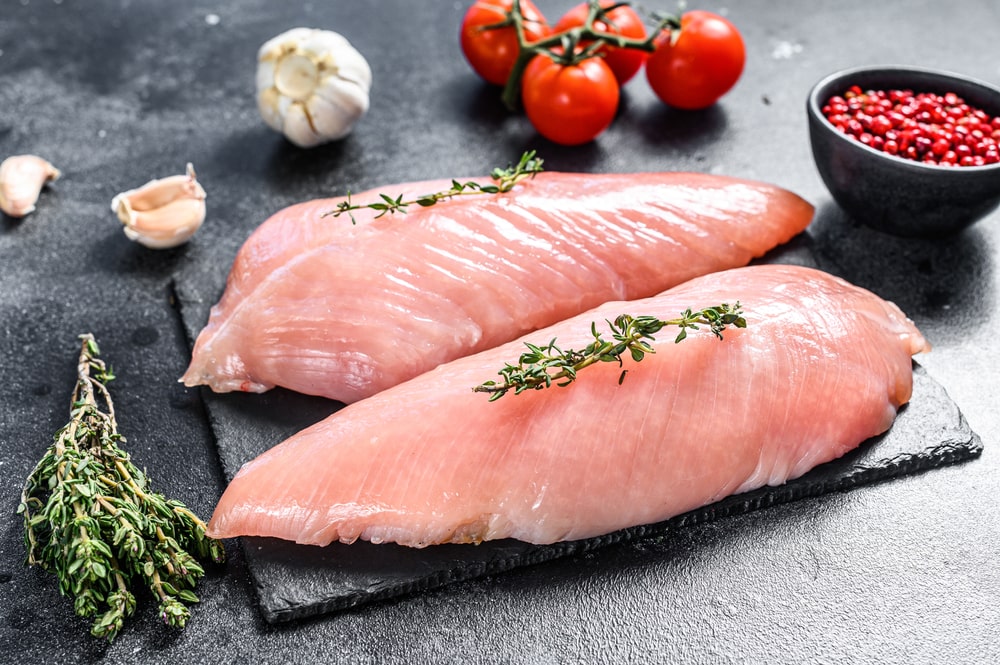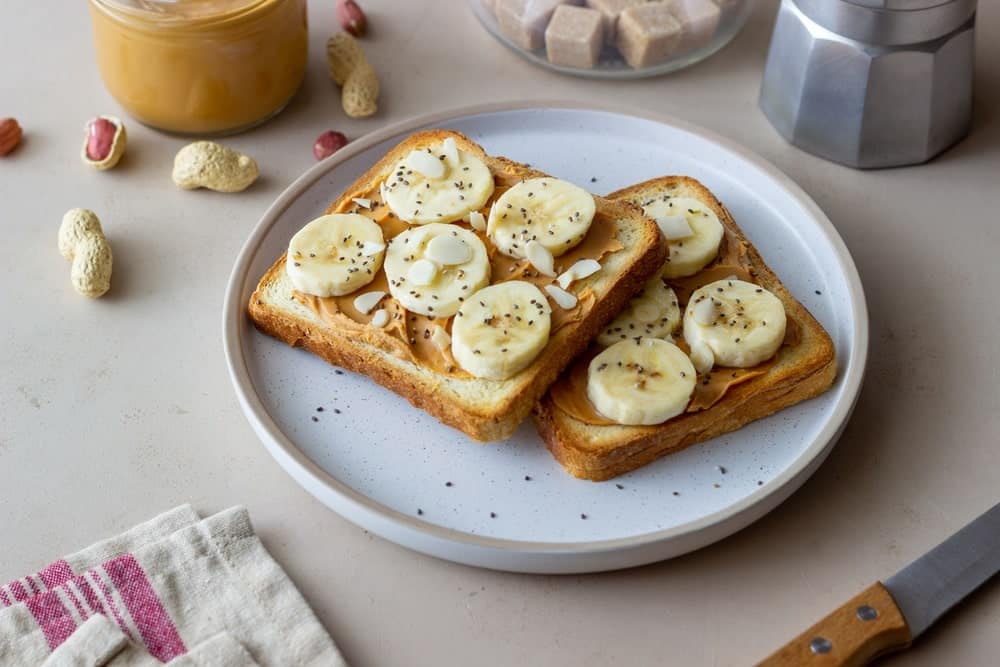Do you have trouble sleeping? These are the foods to combat sleepless nights:
One of the most important aspects of our everyday life is sleep. Our health depends on getting a decent night’s sleep, which allows our bodies to recover, rebuild, and heal. Sleep deprivation affects not just your immune system, motor abilities, and temperament, but also your performance during physical activity.
While occasionally we may have one or two sleepless nights for various reasons, it’s important to not develop a habit out of it. You run the risk of developing high blood pressure, a compromised immune system, and depression if you don’t get the recommended 7 to 8 hours of good sleep each night. Furthermore, there is a chance of developing additional severe illnesses, including diabetes, heart failure, or a stroke.
Now that we have established that sleeping is crucial for our well-being, let’s see what foods are recommended before sleeping.

-
Turkey
Don’t be surprised to see turkey on the list of foods to combat sleepless nights because besides being super tasty is also a great source of lean protein.
Turkey has several nutrients, including riboflavin, phosphorus, and selenium, in addition to protein. Moreover, it has tryptophan, an amino acid that promotes melatonin synthesis and may induce sleep.
Turkey’s capacity to induce fatigue could be attributed to its high protein content. Research suggests that eating a small quantity of protein before bedtime improves the quality of sleep, including fewer nighttime awakenings.
-
Fatty fish
When it comes to foods to combat sleepless nights, fatty fish like salmon stand out pretty high on top. Of course, if you don’t enjoy the taste of salmon, you can try tuna, mackerel, or trout.
A meal of sockeye salmon, for instance, weighing 3 ounces (85 grams), has 570 international units (IU) of vitamin D. 71% of your DV is that. 81% of your DV is found in a comparable portion of farmed rainbow trout.
Furthermore, fatty fish are rich in docosahexaenoic acid (DHA) and eicosapentaenoic acid (EPA), two beneficial omega-3 fatty acids that are known to reduce inflammation. Omega-3 fatty acids and vitamin D from fatty fish may work together to prevent heart disease and improve cognitive function.
-
Kiwi
If you want to have a good night’s sleep, then you may want to introduce kiwi into your daily diet. Complex carbs are one of the best foods to combat sleepless nights. Kiwis are a low-calorie, high-nutrient fruit that can help decrease cholesterol, reduce inflammation, and improve intestinal health. Their high fiber content and carotenoid antioxidant content are the reasons for these effects.
Serotonin is sometimes linked to the sleep-inducing properties of kiwis. One brain chemical that aids in controlling your sleep pattern is serotonin. Consuming a lot of fruit, such as kiwis, in your diet may improve your sleep.
-
Tart cherries
One of the best foods that contain melatonin is tart cherry juice. However, you should be aware that cherry juice has a lot of sugar and that consuming it every night might result in a substantial increase in caloric consumption.
Thus, a better method of obtaining melatonin is to eat cherries rather than drink their juice.
-
Milk
Given that warm milk is a standard remedy for insomnia, its high melatonin content should come as no surprise. If you can handle dairy, it can be an excellent choice.
-
Heart-healthy fats
Another bunch of foods that contain melatonin are the ones that are high in healthy fats. In addition to strengthening your heart, unsaturated fats raise serotonin levels. Examples include nuts like walnuts, almonds, cashews, and pistachios; just be sure that peanuts are the sole component by reading the label. Another example is peanut butter.
Steer clear of high-fat snack foods like potato chips, french fries, and other items rich in saturated and trans fats because your serotonin levels are lowered by them.
-
Chamomile tea
A well-liked herbal drink with potential health advantages is chamomile. Its flavones are widely recognized. A family of antioxidants called flavones lowers inflammation, which frequently triggers chronic illnesses including cancer and heart disease.
Furthermore, chamomile tea contains certain special qualities that could enhance the quality of your sleep. After consuming it every day for just two weeks, chamomile tea might enhance sleep at night.
-
Goji berries
You would be surprised to know that goji berries are one of those foods that contain melatonin. These berries, which come originating from China, are regarded as a superfood by many and are abundant in fiber, protein, and antioxidants.
In addition to helping with anxiety or sadness, goji berries can promote better sleep by promoting mental calmness and an easier time falling asleep.
-
Mushrooms
Tryptophan and melatonin are both abundant in mushrooms. They’re also excellent providers of fiber, antioxidants, and protein. Whatever your preference for button, portabella, or their more exotic cousins, mushrooms offer the same health advantages and promote restful sleep.
You don’t know how to combine these foods that contain melatonin for some healthy snacks? Let me give you some ideas:

-
Banana with nut butter and cinnamon
This is a great combo of foods that contain melatonin and help you combat sleepless nights. Tryptophan is an important amino acid (amino acids are the building blocks of protein) that is known to help promote quality sleep. It plays a role in the creation of serotonin and melatonin. Although tryptophan is most commonly linked to turkey, it may also be present in foods like cheese, bananas, and oats.
A small amount of sugar-free nut butter provides you with a boost of magnesium, a mineral that aids in relaxing. In addition to adding flavor, a little cinnamon has anti-inflammatory properties.
Just take two slices of whole-grain toast bread, spread a bit of your favorite nut butter on it, and then add a couple of banana slices. Voila!
If all the in-store option of nut butter disappoints you, then maybe it’s time to try out ALPINO Natural Peanut Butter Crunch and Smooth Made with 100% Organic Peanuts. Free of sugar and salt is the perfect spread for your before-bed snacks!
-
Kefir with a handful of chopped nuts
Greek yogurt, kefir, and miso are examples of fermented foods that may be useful in reducing the production of cortisol. Kefir is a fermented yogurt beverage that tastes like yogurt but contains additional bacteria that are good for your stomach.
It may be frozen and acts as a healthier, tangier alternative to ice cream. Top with a handful of antioxidant-rich nuts for a boost of melatonin and magnesium.
-
Whole-wheat avocado toast with pumpkin seeds
Another superfood that contains magnesium which is a mineral that we obtain via our diet and helps regulate melatonin is avocado. Versatile, tasty, and easy to combine with a plethora of other foods I chose to eat whole-wheat toast and a couple of pumpkin seeds on top.
The avocado’s healthful fats are sufficiently filling to stave off any late-evening hunger cravings.
What other foods that contain that contain melatonin do you know? Do you have some favorites that you consume daily? Tell me in the comments.
Are you interested in more nutritional facts? You are in the right place for sure. Here at Nutrition in USA, we want to target every little detail about diets, healthy and non-healthy foods and what are the best healthy habits you should pick along the way.
If you are new here don’t forget to subscribe to our newsletter, I promise you won’t regret it! Before leaving check out why one of the foods that contain melatonin is recommended by every doctor in the world.







